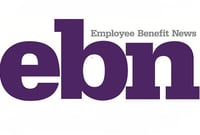Consolidation Corner
-
Blog
- 401k Cash Outs
- 401k Consolidation
- 401k Plan Termination
- America's Mobile Workforce
- Assisted Roll-in
- Auto Enrollment
- Auto Portability
- Auto Portability Simulation
- Automatic Roll-In
- Automatic Rollover
- Automatic Rollovers
- Boston Research Technologies
- CARES act
- Common Mistakes
- DIY Roll-In
- DOL Advisory Opinion
- EBRI
- Employee Benefit News
- ERISA Advisory Council
- Financial Services Roundtable
- Financial Wellness
- How-To
- In-Plan Consolidation
- Leakage
- Lifetime Plan Participation
- Lost Participants
- Managed Portability
- Mandatory Distributions
- MarketWatch
- Missing Participant IRA
- Missing Participants
- National Retirement Savings Cash Out Clock
- Participant Transition Management
- PLANSPONSOR
- Portability Services Network
- PSCA
- Public Policy
- RCH Services
- Retirement Income
- Retirement Plan Portability
- retirement research
- Retirement Savings Consolidation
- Retirement Savings Portability
- Roll-In
- Safe Harbor IRA
- Saver's Match
- Security
- Small Accounts
- Stale Dated Checks
- Synthetic Tenure
- Uncashed Check Services
- Uncashed Distribution Checks
- Video
- Webcast
- What is a Missing Participant?
Auto Enrollment (2)
Consolidation Corner Blog
Consolidation Corner is the Retirement Clearinghouse (RCH) blog, and features the latest articles and bylines from our executives, addressing important retirement savings portability topics.
The Explosion of Small 401(k) Accounts
 It’s generally accepted that the small-balance accounts of terminated 401(k) plan participants have been a problem for plan sponsors, resulting in increased plan costs, fiduciary risk and other ancillary problems, such as missing participants and uncashed distribution checks.
It’s generally accepted that the small-balance accounts of terminated 401(k) plan participants have been a problem for plan sponsors, resulting in increased plan costs, fiduciary risk and other ancillary problems, such as missing participants and uncashed distribution checks.
Now, based on new information from EBRI and other sources, we’re learning that small accounts are a large and growing problem for active participants as well.
New EBRI Research Finds $2T Saved From Automated Portability

As much as $2 trillion could be retained in the U.S. retirement systems if Auto Portability were fully implemented, according to new research by the Employee Benefit Research Institute (EBRI). The research establishes Auto Portability as a leading retirement industry public policy initiative, placing it ahead of auto IRA initiatives and just behind universal DC coverage in terms of impact on total retirement savings shortfall.
The Stealth Solution to America’s Retirement Savings Crisis
 Over the past year, the Department of Labor’s Fiduciary Rule has been highly-visible, presenting major ramifications for the retirement industry and looming large on the radar screens of retirement services providers.
Over the past year, the Department of Labor’s Fiduciary Rule has been highly-visible, presenting major ramifications for the retirement industry and looming large on the radar screens of retirement services providers.
The underlying rationale for the rule, as stated by the Obama administration in an April 6, 2016 press briefing, was to save retirement investors $17 billion per year in lost retirement savings that result from conflicts of interest in retirement advice. Certainly, anything that protects $17 billion in retirement savings is a worthy goal, if it helps more Americans meet their retirement income needs.
However, there’s a larger hole in our retirement system – cash-out leakage – that inflicts far greater harm to American retirement savers, yet this threat continues to fly beneath our collective radar.
Incubate Small Retirement Accounts, Don’t Throw Them Away
 On February 3rd, the U.S. Chamber of Commerce, the world’s largest business federation representing the interests of more than 3 million businesses, released Securing America’s Retirement, their legislative roadmap aimed at strengthening the U.S. retirement system.
On February 3rd, the U.S. Chamber of Commerce, the world’s largest business federation representing the interests of more than 3 million businesses, released Securing America’s Retirement, their legislative roadmap aimed at strengthening the U.S. retirement system.
The Chamber’s goals are admirable.
How Auto Portability Will Bridge the Minority 401(k) Participation Gap
Under-participation by minorities in America’s 401(k) system represents a significant economic disparity that requires creative, private-sector solutions.
Auto portability – an emerging plan feature that automatically moves small balance accounts forward when participants change jobs – could play a critical role in helping to bridge the participation gap.
Auto Enrollment: The Unintended Consequences, Part II
In his December 1, 2015 article (The unintended consequence of 401(k) auto-enrollment), RCH CEO Spencer Williams exposes the linkage between auto enrollment and lower average account balances. Based on Form 5500 data, Williams’ analysis presents some excellent examples of industries where average balances are significantly lower in plans that have adopted auto enrollment compared to plans that haven’t.
The checklist you need to manage multiple retirement accounts
 In his December 16th, 2015 article in MarketWatch, RCH’s CEO Spencer Williams offers a year-end checklist for those retirement savers who’ve elected to leave qualified retirement savings accounts behind with their former employers.
In his December 16th, 2015 article in MarketWatch, RCH’s CEO Spencer Williams offers a year-end checklist for those retirement savers who’ve elected to leave qualified retirement savings accounts behind with their former employers.
As 401(k) Cash Out Leakage Grows, So Does Need for Auto Portability
 In his December 11th article in BenefitsPro (Addressing the Critical Problem of 401(k) Cash Outs), Nick Thornton draws much-needed attention to the magnitude of the 401(k) cash out leakage issue, due to the frictions associated with account portability when plan participants switch jobs. Thornton’s article rightly emphasizes the need for automated portability – similar to automatic enrollment and deferral increases - to effectively address the cash out problem.
In his December 11th article in BenefitsPro (Addressing the Critical Problem of 401(k) Cash Outs), Nick Thornton draws much-needed attention to the magnitude of the 401(k) cash out leakage issue, due to the frictions associated with account portability when plan participants switch jobs. Thornton’s article rightly emphasizes the need for automated portability – similar to automatic enrollment and deferral increases - to effectively address the cash out problem.
The unintended consequence of 401(k) auto-enrollment
 Auto enrollment, codified in law by the Pension Protection Act of 2006, was drafted with the best of intentions—to increase Americans’ retirement savings—but it has had the unintended consequence of impairing plan effectiveness. By proliferating small accounts in plans, auto enrollment has caused a decrease in average account balances throughout the U.S. retirement system. Adding to the urgency of this issue is the rising rate of auto enrollment adoption across defined contribution plans of all sizes, but particularly among larger plans.
Auto enrollment, codified in law by the Pension Protection Act of 2006, was drafted with the best of intentions—to increase Americans’ retirement savings—but it has had the unintended consequence of impairing plan effectiveness. By proliferating small accounts in plans, auto enrollment has caused a decrease in average account balances throughout the U.S. retirement system. Adding to the urgency of this issue is the rising rate of auto enrollment adoption across defined contribution plans of all sizes, but particularly among larger plans.
Enhance Auto Enrollment with Auto Portability
 The Pension Protection Act of 2006 created a safe harbor for retirement plan sponsors to automatically enroll employees in their plans. This provision was designed to help plan sponsors and participants over the long term, and it has—but it also unintentionally fueled a surge in small accounts, hurting both constituencies.
The Pension Protection Act of 2006 created a safe harbor for retirement plan sponsors to automatically enroll employees in their plans. This provision was designed to help plan sponsors and participants over the long term, and it has—but it also unintentionally fueled a surge in small accounts, hurting both constituencies.
-
Blog
- 401k Cash Outs
- 401k Consolidation
- 401k Plan Termination
- America's Mobile Workforce
- Assisted Roll-in
- Auto Enrollment
- Auto Portability
- Auto Portability Simulation
- Automatic Roll-In
- Automatic Rollover
- Automatic Rollovers
- Boston Research Technologies
- CARES act
- Common Mistakes
- DIY Roll-In
- DOL Advisory Opinion
- EBRI
- Employee Benefit News
- ERISA Advisory Council
- Financial Services Roundtable
- Financial Wellness
- How-To
- In-Plan Consolidation
- Leakage
- Lifetime Plan Participation
- Lost Participants
- Managed Portability
- Mandatory Distributions
- MarketWatch
- Missing Participant IRA
- Missing Participants
- National Retirement Savings Cash Out Clock
- Participant Transition Management
- PLANSPONSOR
- Portability Services Network
- PSCA
- Public Policy
- RCH Services
- Retirement Income
- Retirement Plan Portability
- retirement research
- Retirement Savings Consolidation
- Retirement Savings Portability
- Roll-In
- Safe Harbor IRA
- Saver's Match
- Security
- Small Accounts
- Stale Dated Checks
- Synthetic Tenure
- Uncashed Check Services
- Uncashed Distribution Checks
- Video
- Webcast
- What is a Missing Participant?
